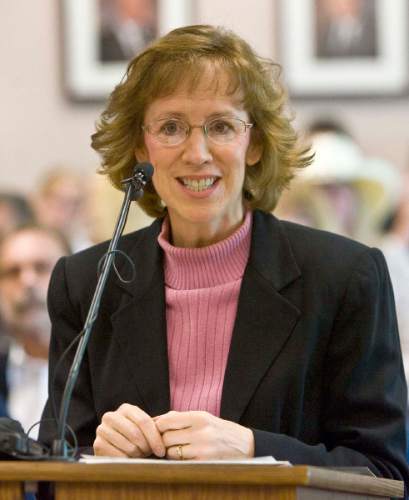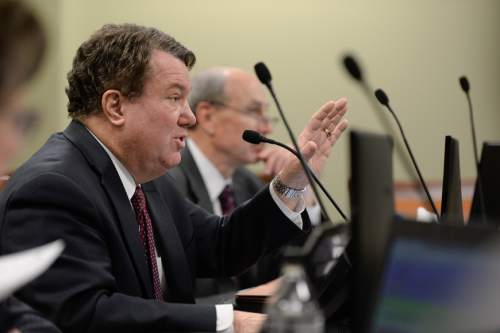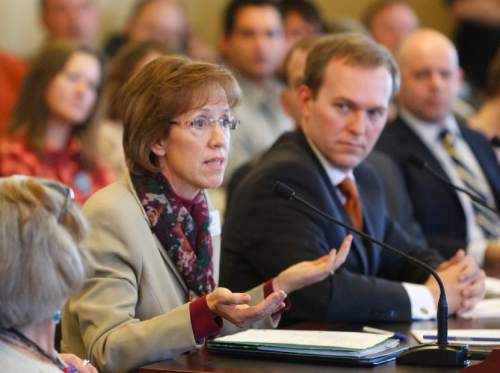This is an archived article that was published on sltrib.com in 2016, and information in the article may be outdated. It is provided only for personal research purposes and may not be reprinted.
Utah lawmakers postponed a vote Friday night on a proposal to ensure married gay couples are treated equally as married heterosexual couples in adoptions and foster care placements.
The vote was delayed after legislators cited worries about the late hour and concerns that some had about the measure.
Officials with the Utah Attorney General's Office and state child welfare division testified in support of the bill, saying it would bring Utah in line with last year's U.S. Supreme Court ruling legalizing gay marriage.
But a House judiciary committee voted 8-3 Friday evening to leave for the day without voting on the measure.
The move followed critical comments from several same-sex marriage opponents and intense questioning from the committee's conservative chairman about the same-sex marriage ruling and who asked state officials to look at changing Utah's law.
Equality Utah Executive Director Troy Williams told lawmakers that he recognized that many in Utah felt the Supreme Court ruling was a loss and that they don't oppose same-sex marriage out of malice. Williams said the LGBT community wanted equal opportunity.
Several conservative speakers then urged lawmakers to oppose the bill, arguing that children do better in homes with heterosexual married parents.
"The law should continue to uphold the gold standard for children," said Laura Bunker with the conservative group United Families International.
Brent Platt, the director of Utah's child welfare agency, said the department supported the bill because it would make the state's adoption and foster care law conform with federal law.
The committee's chairman, Rep. LaVar Christensen, R-Draper, interrupted to point out that same-sex marriage is legal by case law, which means it is legal by court ruling as opposed to a law passed by Congress.
"I'm talking about the Supreme Court decision," Platt responded.
"One decision," Christensen said. "I'm trying to be clear."
Christensen later asked an official with the Utah Attorney General's Office who directed him to review the state's laws in the wake of the Supreme Court ruling.
David Carlson, who directs the Utah Attorney General's Child Protection Division, said the state Human Services Department and child welfare agency asked for the review.
"So they independently asked you to do that?" Christensen asked.
Carlson said that was correct.
Christensen started to ask whether the state had an expanded focus if the court decision was limited to a decision about who can marry.
Rep. Brian King, D-Salt Lake City, tried to ask whether Christensen was violating legislative rules by interrupting the presentation, but Christensen wouldn't allow the discussion. He and King argued briefly and Christensen threatened to end the meeting before allowing it to continue.
Orem Republican Rep. Keven Stratton, citing the late hour and concern that people had about the issue, called for the committee to adjourn and resume discussion of the issue at a future meeting, which could come next week.
Rep. Angela Romero, D-Salt Lake City, the bill sponsor, declined to comment after the hearing.
She later sent out a statement saying the law of the land is clear on the issue and Utah's laws should reflect that.







